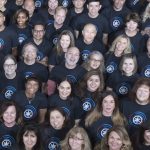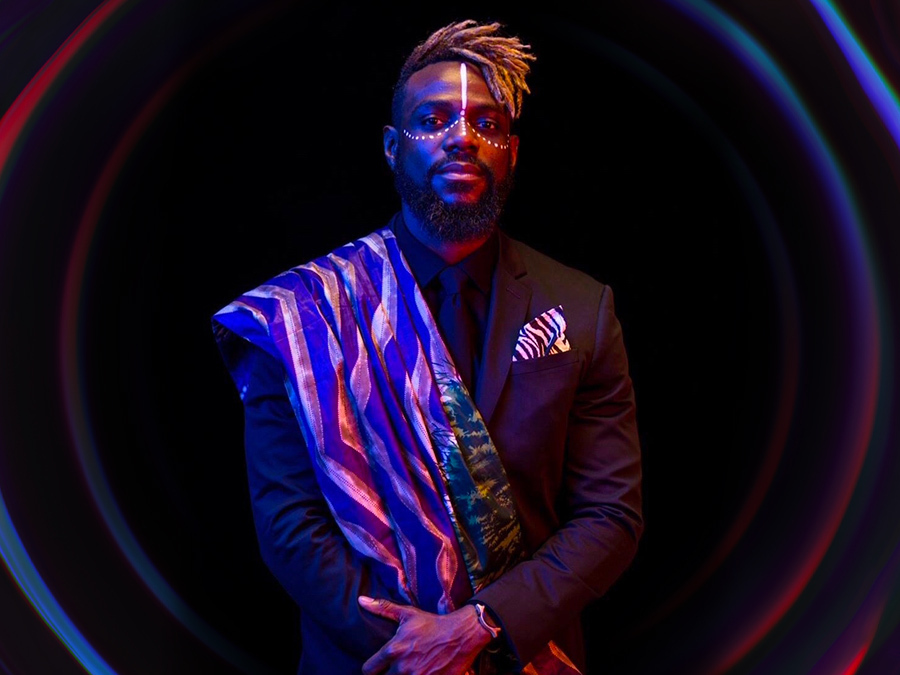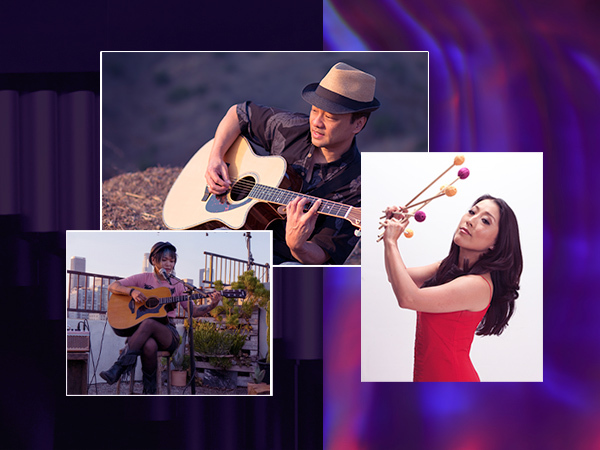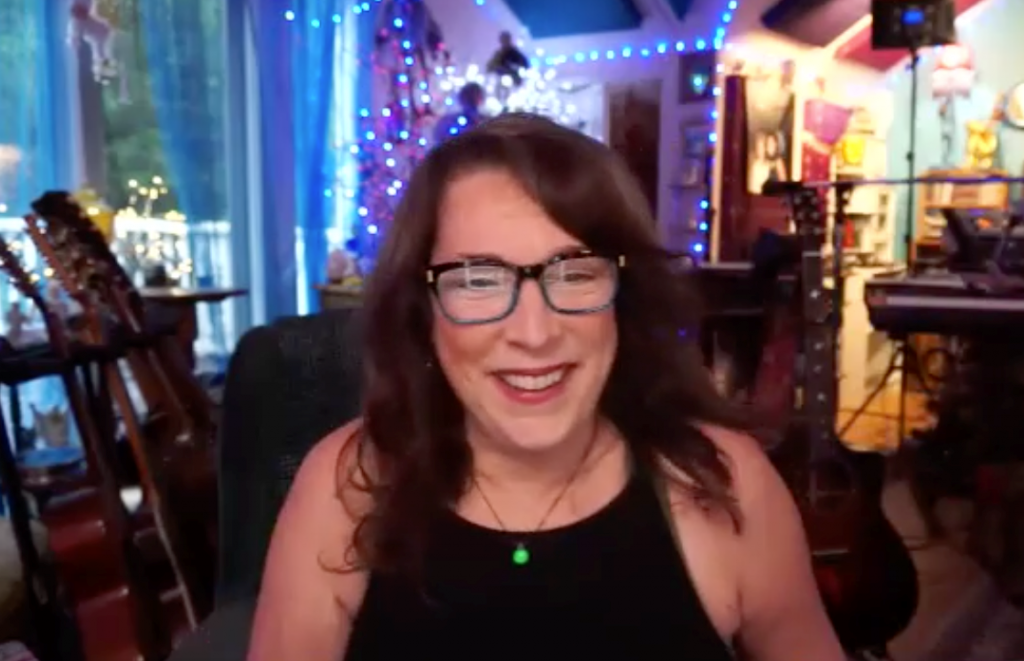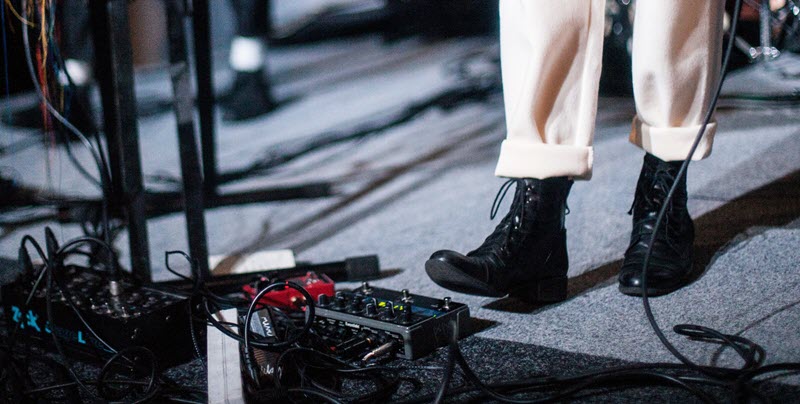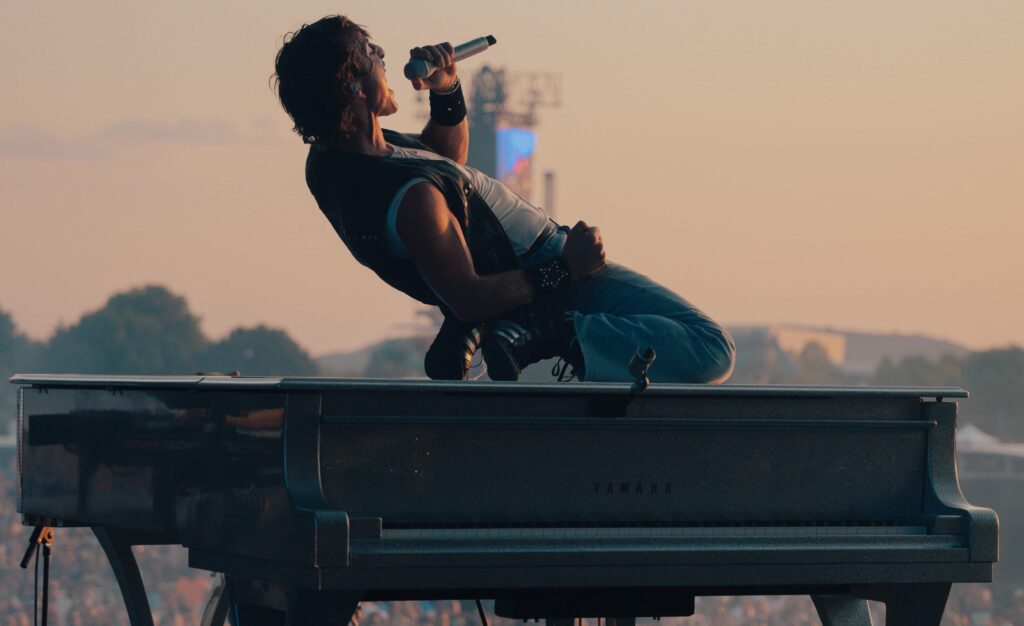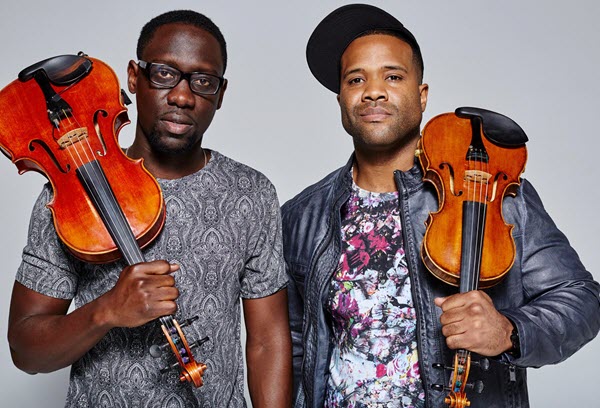Tagged Under:
Bethany Robinson: Education As Foundation
Inspiring a new generation of music makers with jazz bass fundamentals.
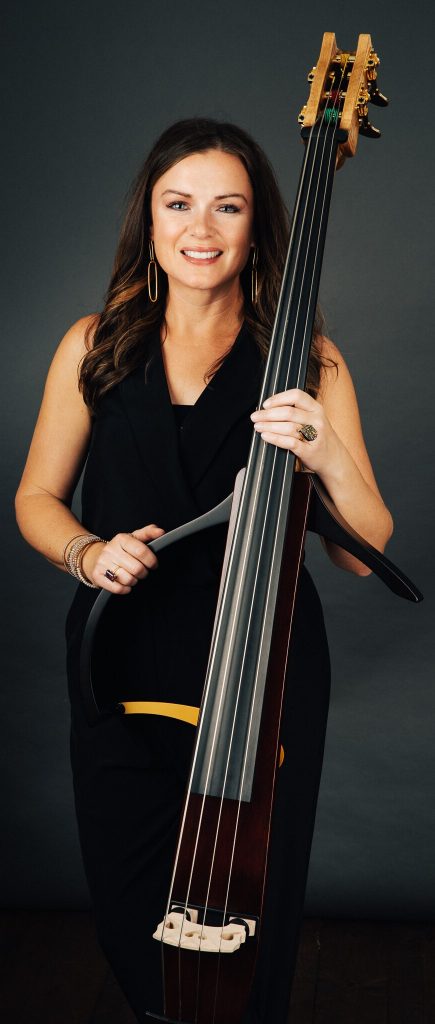
“I think confidence is a skill that you can teach along with notes and rhythms,” says Yamaha Artist and educator Bethany Robinson. “When we ask students to stand up and improvise, that can be a very, very scary moment for them. Helping to equip them with something that they’re going to be instantly successful with — or breaking it down into such a small thing [so] that every student, no matter their experience level, will sound good when they get up and do this — [that’s when] their confidence and their competence grows.”
Robinson herself approaches her two callings — as an educator and as a professional jazz bassist — with a confidence and an enthusiasm that is palpable. A 2022 Grammy Music Educator Award Finalist, she was named one of the 2022 Jazz Heroes by the Jazz Journalists Association, which honors advocates who have had a significant impact in their local communities. It’s easy to see how she has become an inspiration for both her students and her fellow musicians.
COMPETITIVE EVEN AS A SIXTH GRADER
Growing up in a musical family with a mother who was a piano teacher and a father who was a bass player gave Bethany an early start as a musician. Having enjoyed the public school band experience, she intended to join her middle school jazz band as a pianist but when it was time to audition, found numerous piano players already lined up. Spotting a kid in the corner with a bass, she went up to him and asked how long he had been playing the instrument. His answer? “One day.”
Robinson — who admits that she was competitive even as a sixth-grader — recalls running home and excitedly telling her father, “Dad, this kid has a one-day head start on me!” No doubt delighted that his daughter wanted to follow in his footsteps, her father handed over his bass and a career was born.
“I sat at the piano and I made my own fingering chart and figured out what note was what,” she recalls, “and really fell in love with the bass. Out of all the instruments I learned over the years, that was the one that spoke to me the most. I love the foundational aspect of being the low end for the band and keeping things moving.”
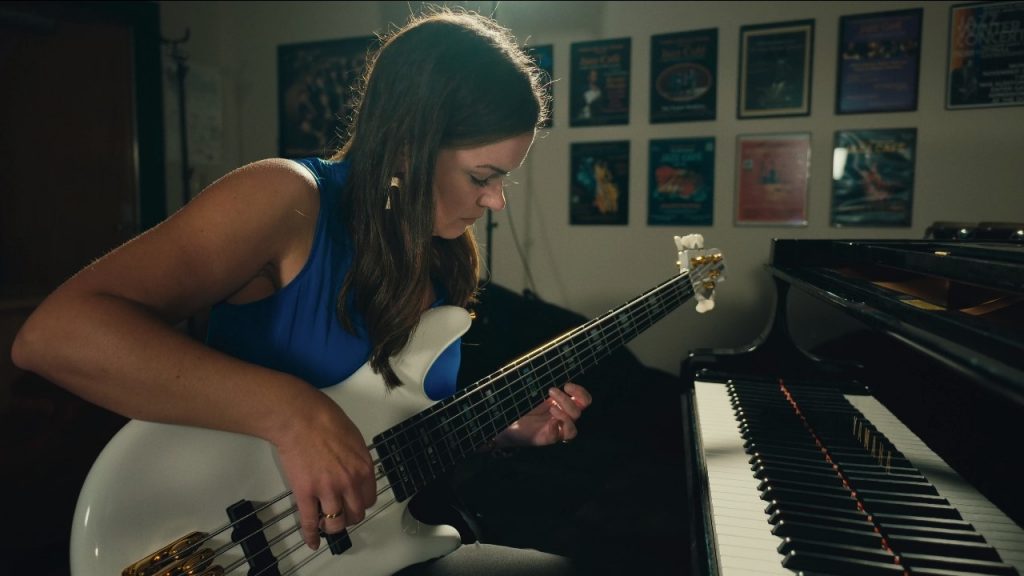
ON TEACHING
Robinson received her first Lilly Teacher Creativity Grant in 2011, which allowed her to travel to New Orleans and New York City in order to explore current trends in jazz. In the course of that journey, she attended the Band Director Academy at Jazz at Lincoln Center and developed a whole new concept of jazz pedagogy at the secondary level.
She was teaching sixth grade music when she was given the opportunity to come to Noblesville High School in Indiana (where she still serves as Jazz Band Program Director and Assistant Band Director) soon after the head band director had retired. “It was perfect timing in my career,” she says, “[though] there was just one jazz band here and it was made up of students who were just perhaps not interested in doing marching band. So they were resistant at first [to things like auditions, traditional jazz literature, dancing in class, etc.] but then it became the culture and all the older students [told] the freshmen, this is what we do, we dance and we sing. Then we added a second band and then a third one and now we have six of them.”
Under Robinson’s direction, Noblesville bands have made four appearances at the Indiana State School Music Association (ISSMA) Jazz State Finals, took second-place at the 2021 & 2022 National Jazz Fest Large School Jazz Ensemble Category and were two-time finalists in the prestigious Jazz at Lincoln Center Essentially Ellington Festival and Competition.
“Just this past year, we had the chance to win the State Finals for the very first time in my career,” she reports. “We didn’t. [But it was] one of my favorite moments of my teaching career because we were able to watch most of the bands and our kids were genuinely cheering on every [competitor]. On the way home, more than one student came up to me and said, ‘I wouldn’t have traded first place for any experience we had today because it was so great.’ That’s a moment as a teacher. You think, ‘They get it!’ It’s not about winning, it’s not about first place. It’s about the experiences that we have when we come together and everyone fulfills their role and brings their spirit into the music.”
THE IMPORTANCE OF SCHOOL MUSIC PROGRAMS
Given her own personal experience, it comes as no surprise that Robinson is a fierce advocate of school music programs. “[They] were so important for me,” she states. “First of all, [they] gave me a place to belong and take whatever excitement or skills or intelligence I have and channel them into something that was social. With private lessons, you’re by yourself and you’re making music, but the motivation to practice when it’s just you and an instrument [is not always there]. Some kids have that, but as soon as you start making music with other people, there’s the idea that we all can bring something unique, we all bring this sound together and we’re all kind of counting on each other. There’s something really special about playing your instrument with other people and having that interaction. It’s like a conversation: You don’t know where it’s going to go, but the more you have them, the more comfortable you are with them. For me, the idea of playing with other people was so transformative and so motivating that I wanted to devote my life to giving those opportunities and those same experiences to the students too.”
“I find that, for students, having a place to belong in middle school or high school changes their experience and their personal growth, and maybe [even] the path that they find themselves on. For a freshman coming from a middle school to a huge high school, they have so many options [as to] who to eat lunch with or who they’re going to see in the hall. What school music programs give students is connection. And if students have connection, then they’re going to be showing up to their math class and to their reading class and to their social studies class.”
Robinson has the following message for parents who are allowing their kids to be a part of school music programs: “The first thing I would say is thank you. And I also would say that this music program will change [your child’s] life. They will be connected in a way that they wouldn’t be otherwise. So keep them in music because it will help them for the rest of their lives, no matter what they decide to do.”
“Students have unlimited potential in music,” she adds. “The main thing [for them] is to find artists that they love to listen to, friends that they love hanging out with and can jam with, to come up with arrangements of songs, to get together with others and try to transcribe a jazz solo. The more fellow students they can get together with [to] hang and play music and sing, that’s going to be how they continue to fall in love with music and get better and better at their instrument.”
PURSUING GOALS
“10 years ago, I didn’t even know what the Essentially Ellington program was,” Robinson says. “But I went there and I was like, wow, hopefully I could do this. It was just a dream; you say these things out loud and then you kind of laugh because there’s no way that would really ever happen, but it never stopped me from pursuing [that goal]. Goals may seem completely impossible and completely unattainable, but the process of pursuing them is actually so formative. [In this case], you’re learning about this really deep music and how difficult it is. But no matter how bad it is when you start, it just gets better and better, so it changes you in the process. Even if you don’t reach that ultimate goal you’re after, the steps you take to try to get there are just as important.”
MUSIC COMES ALIVE
“Music really comes alive when students are moving beyond just the notes and rhythms that are on the page,” Bethany explains, “and when it does, it becomes expressive. When you listen to original recordings, [you realize that] there’s so much inflection that could never be written out on a piece of paper. It’s when students start connecting to those moments of expression that they realize how nuanced music is … and how nuanced life can be. They have to pay attention on such a deep level to understand the music and then emulate it in order to come up with their own expression, and that then helps them to be more expressive in other areas of their life as well, [even in] their relationships with other people.”
“I get really emotional when I think about how the students benefit from what we do,” she continues. “Building this kind of culture creates an ecosystem for students to succeed, no matter what the subject is. That is the most important thing to me. We just happen to be making great music along the way.”
Bethany with her students at the Essentially Ellington Jazz Band Competition at Lincoln Center.
For more information, visit www.bethanyrobinsonjazz.com









